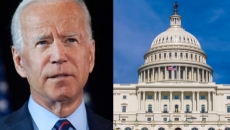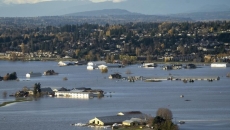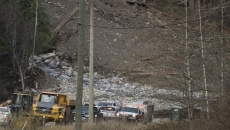OTTAWA - Health Canada should be ready to make an authorization decision about Pfizer's Paxlovid antiviral treatment for COVID-19 in a week to 10 days, chief medical adviser Dr. Supriya Sharma said Thursday.
But it's still unclear when shipments will start or how much Canada will get at first as supply issues for the U.S.-made drug have made it incredibly hard to get even in the U.S., where it was authorized before Christmas.
Canadian health leaders and some premiers have been publicly pressuring Health Canada to greenlight the medication, which prevents the SARS-CoV-2 virus that causes COVID-19 from reproducing within a patient's body. Pfizer's clinical trial showed for high-risk patients it prevented hospitalizations by about 90 per cent.
The results were so good Pfizer ended the trial early to start getting the medicine approved and distributed more widely. It applied to the United States Food and Drug Administration Nov. 22, and to Health Canada Dec. 1.
The U.S. authorized it for use in patients at least 12 years old three weeks ago. The United Kingdom approved it Dec. 31.
But Sharma told The Canadian Press in an interview Thursday that the Canadian submission was incomplete, and more data came in the last week of December and again earlier this week.
"So maybe in the next week to 10 days, approximately, we should have a decision," she said.
But Sharma is pushing back at people who have been publicly critical of Health Canada for taking too long.
"Maybe this is being a bit blunt, but the people that are making those comments usually have no regulatory experience and don't have access or know about the to-ing and fro-ing that we're doing with the company," she said.
She added that Canada also tried to get Pfizer to ship some courses of the medication before approval using a regulation that allows medications approved elsewhere to be used in Canada when there is an urgent health need.
"They basically said they weren't able to do that, they didn't have supply," she said.
Sharma said even if Health Canada got all the data it needed three weeks ago, "we probably wouldn't have been able to have supply for Canada either."
The U.S. ordered more than 20 million courses of the drug, and was to get four million in January, but U.S. media reports that access to Paxlovid is next to impossible across most of the country currently.
Canada said last fall it had purchased one million courses of the treatment.
Pfizer Canada spokeswoman Christina Antoniou said information on shipments to Canada won't be available until Health Canada authorizes it. She did specifically confirm that supply issues prevented Pfizer from making earlier shipments under the Urgent Public Health Need regulations.
"Through our discussions, we jointly determined the most efficient path to achieve this was the rolling submission process that is currently underway," she said.
Kevin Smith, the CEO of the University Health Network in Toronto, went public with demands for Paxlovid's approval in early January, calling them an "essential addition" to hospitals' needs.
While he said he has respect for the regulatory process at Health Canada, he struggles to understand why the United States and United Kingdom approved the drugs much more quickly than Canada.
“My problem is, at the moment, the perception of the clinical community who are struggling, greatly struggling, is we don't have approval for this drug," he said. "Pfizer choosing not to supply Canada is a different problem and one that I think we would all willingly champion,” Smith said in an interview with The Canadian Press.
“We'd be delighted to help bring pressure to Pfizer to make sure that we get that drug as soon as possible.”
A second antiviral medication from Merck is facing a potentially bumpier ride to approval in Canada. The company applied in August for Molnupiravir after early results suggested it was cutting hospitalizations for high-risk patients by about 50 per cent.
Final results reduced that efficacy to just 30 per cent and there are more concerns about side-effects as well, said Sharma.
"It's a bit more complicated," she said. "So we're progressing with that, we've asked for additional data from the company and we will basically work through that review. We don't have a specific timeline for that."






